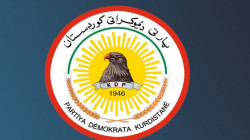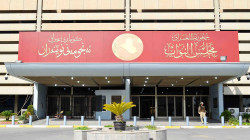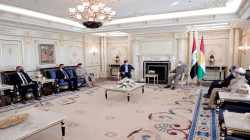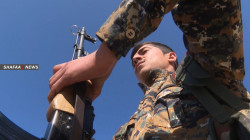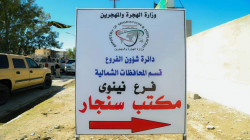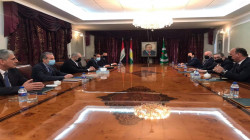KDP welcomes al-Sadr's decision to reverse the elections boycott
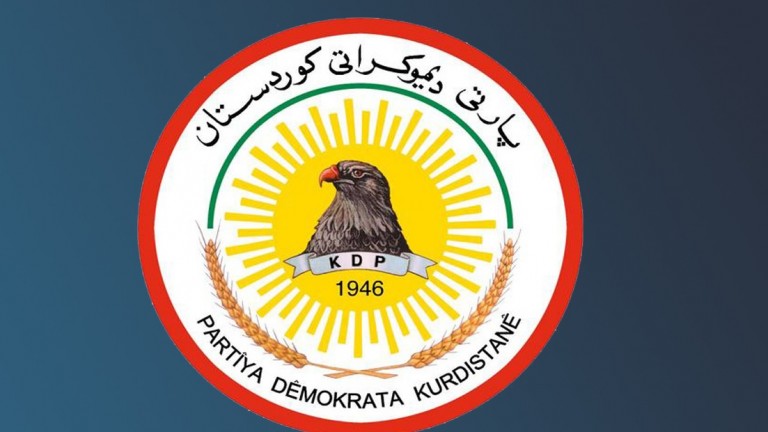
Shafaq News/ The Kurdistan Democratic Party (KDP) on Saturday welcomed the decision of the Sadrist Movement's leader, Muqtada al-Sadr, to rejoin the electoral contest, urging Iraqi political parties that abandoned their bid for parliamentary seats to reverse their decision.
In a press release issued earlier today, the spokesperson of the leading Kurdish party, Mahmoud Muhammad, said, "it seems to us that, after examining and revising the public interest, his eminence Sayyid Muqtada al-Sadr announced the Sadrist Movement's decision to partake in the Iraqi parliamentary elections."
"We, in turn, appreciate this decision as we view it as a crucial step, a service to the public interest, an insurance for the flow of the political process and the stability of the situation."
Muhammad called on "the remaining parties and figures that announced its withdrawal from the elections to reverse their decision for the interest of Iraq and its people."
The populist Shia Muslim scholar, Moqtada al-Sadr, has said he and his supporters would take part in Iraq’s October general election, reversing a decision last month to stay out.
Al-Sadr's bloc is part of a coalition that holds the most seats in parliament now, and is likely to be one of the frontrunners in the vote, which was called early by Prime Minister Mustafa al-Kadhimi as a response to popular protests that took place in 2019.
Al-Sadr said in a televised address on Friday that the about-face came after a number of political leaders, whom he did not identify, had written to him with a “charter for reform” to rid Iraq of corruption and mismanagement.
Taking part in the elections is “now acceptable”, he said, flanked by dozens of officials from his Sadrist movement.
He urged supporters to go to the polls and vote in the election scheduled for October 10. A vote for his movement, he said, would mean an Iraq liberated from foreign meddling and rampant corruption.
“We will enter these elections with vigour and determination, in order to save Iraq from occupation and corruption,” al-Sadr said.
Al-Sadr, whose political manoeuvres have at times puzzled observers, had said in February he backed early elections overseen by the United Nations.
He commands a loyal following of millions of Iraqis, is one of the most powerful political leaders in Iraq and has grown his influence over state institutions in recent years.
Al-Sadr loyalists hold official posts with control of a large portion of the country’s wealth and patronage networks. Detractors accuse al-Sadr and his supporters, like other Iraqi parties, of being involved in corruption within state institutions – a charge Sadrists reject.
An unpredictable and wily political operator, al-Sadr opposes the presence of US troops, of which some 2,500 remain in Iraq, and rejects the influence of neighbouring Iran – a position at odds with many rival Shia politicians and armed groups who are loyal to Tehran.
Militias loyal to al-Sadr fought the US-led occupation of Iraq and he retains a devoted following among the country’s majority Shia population, including in the poor Baghdad district of Sadr City.
The parliamentary vote is set to be held under a new electoral law that reduces the size of constituencies and eliminates list-based voting in favour of votes for individual candidates.
Prime Minister Mustafa al-Kadhemi, who came to power in May last year after months of unprecedented mass protests against a ruling class seen as corrupt, inept and subordinate to Tehran, had called the early vote in response to demands by pro-democracy activists.
Al-Sadr’s supporters have been expected to make major gains under the new electoral system.
His Sairoon bloc is currently the largest in parliament, with 54 out of 329 seats.
Plagued by endemic corruption, poor services, dilapidated infrastructure and unemployment, Iraq is facing a deep financial crisis compounded by lower oil prices and the COVID-19 pandemic.
Al-Sadr has appeared under pressure in recent weeks, with pro-Iran groups and individuals attacking him on social media and accusing him of responsibility for Iraq’s recent woes, including electricity shortages and two deadly hospital fires.
